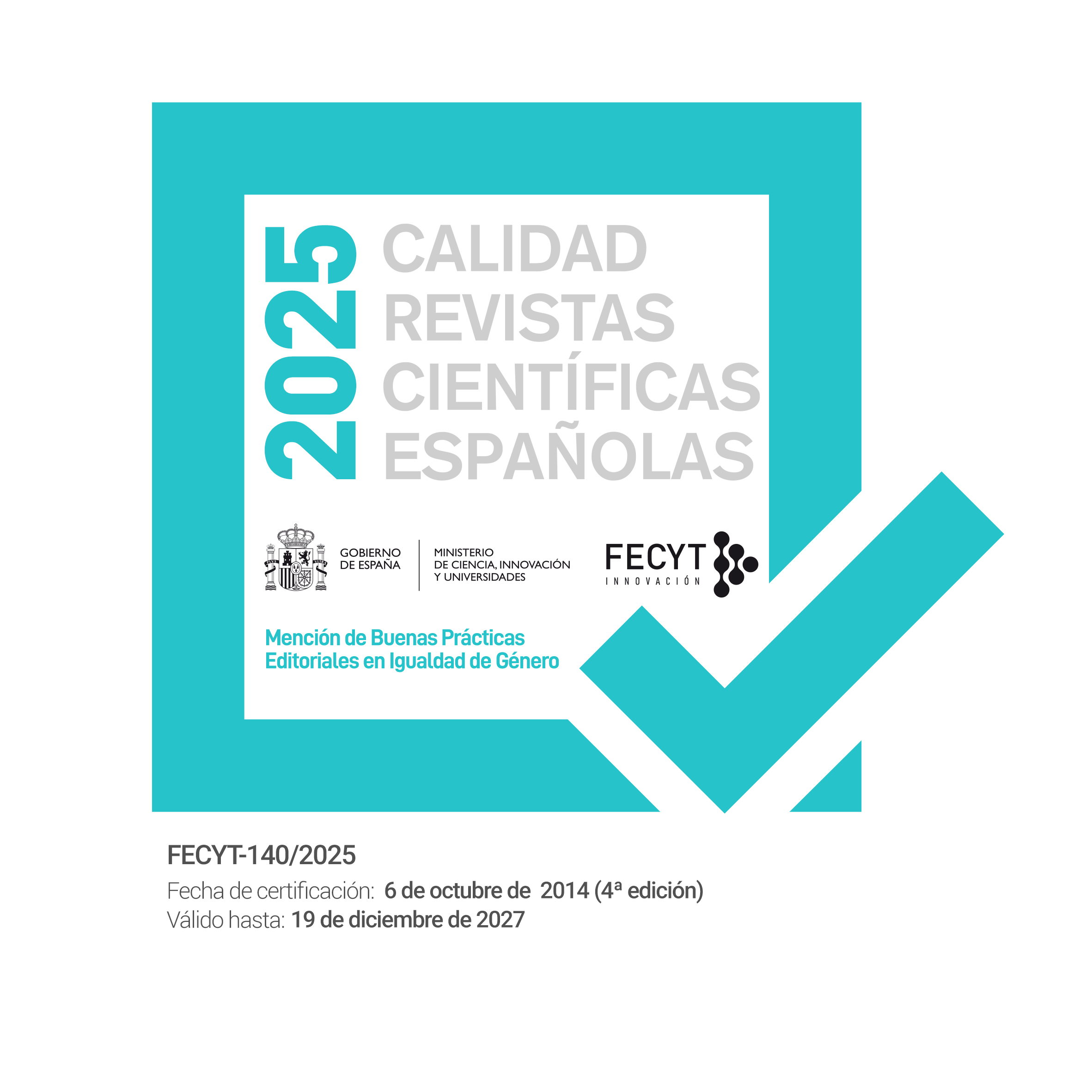THE OPINION OF TEACHERS ON THE STRENGTHS AND WEAKNESSES OF HIGH-STAKES TESTS IN SPAIN
DOI:
https://doi.org/10.5944/educxx1.19416Keywords:
Educational policy, educational testing, high stakes tests, accountability.Abstract
The aim of this paper is to identify the strengths and weaknesses of highstakes examinations in the view of Primary and Secondary school teachers in Spain. For that purpose, we have analyzed the answers to two open questions from a larger survey designed to determine the teachers’ opinions on these strengths and weaknesses. Out of the total sample, we have selected 1,607 responses corresponding to five Autonomous Communities or regions, distributed as follows: 321 from Andalusia, 445 from Catalonia, 239 from Galicia, 491 from Madrid and 111 from the Basque Country. The questionnaire was applied between November 2013 and May 2014. Its administration began shortly before the new Organic Law for the Improvement of Quality in Education (LOMCE) was passed, although the debate around it had already been taking place for at least a year in the educative community, an important trait of the context in which the survey was carried out. Responses were coded and categorized applying an inductive-deductive process with this sequence: I.Source of information; II. Emerging codes; III. Categories; and IV. Dimensions.
The information has been treated according to the following variables:
(a) Autonomous Communities; (b) education stage (Primary Education
and Compulsory Secondary Education); and (c) main role undertaken by
respondents at the school (members of the school managing team vs. the rest of the teachers). Results show that by and large there are more references to weaknesses than to strengths. Also, the diagnostic function of tests and their decontextualisation stand out as the most frequent strength and weakness respectively. The analysis reveals significant differences between autonomous communities and also, in some cases, differences depending on the role undertaken by respondents.
Downloads
References
Bacon, J. (2015). The impact of standards-based reform on special education and the creation of the ‘dividual. Critical Studies in Education,
(3), 366-383.
Basit, T. (2003). Manual or electronic? The role of coding in qualitative data analysis. Educational Research, 45(2), 143-154.
Berryhill, J., Linney, J.A., & Fromewick, J. (2009). The Effects of Education Accountability on Teachers: Are Policies Too-Stress Provoking for Their Own Good? International Journal of Education Policy and Leadership, 4(5). Recuperado de http://www.ijepl.org
Bishop, J. (2006). Drinking from the fountain of knowledge: Student incentive to study and learn. In A. Hanushek & F. Welsh (Eds), Handbook of the economics of education (pp. 909-944). Amsterdam: North-Holland.
Bourke, R., & Mentis, M. (2013). Selfassessment as a process for inclusion. International Journal of Inclusive Education, 17(8), 854-867.
Brom, L., Dalle, P., y Elbert, R. (2007). Interpretaciones sobre corrupción, democracia y desarrollo económico: entrevistas en manifestaciones colectivas de protesta. En R. Sautu (Comp.), Práctica de la investigación cuantitativa y cualitativa: articulación entre la teoría, los métodos y las técnicas (pp. 183-217). Buenos Aires: Lumiere.
Cohen, L., & Manion, L. (1989). Research methods in education. London: Routledge.
Conley, D. (2015). A new era for educational assessment. Education Policy Analysis Archives, 23(8). http://dx.doi.org/10.14507/epaa.v23.1983.
Coburn, C.E., Hill, H.C., & Spillane, J.P. (2016). Alignment and Accountability in Policy Design and Implementation: The Common Core State Standards and Implementation Research. Educational Researcher, 45(4), 243-251.
Darling-Hammond, L., & Falk, B. (2013). Teacher Learning Through Assessment. How Student-Performance Assessments Can Support Teacher Learning. Washington: Center for American progress.
Domenech, J., Blazquez, D., de la Poza, E., & Muñoz-Miquel, A. (2015). Exploring the impact of cumulative testing on academic performance of undergraduate students in Spain. Educational Assessment, Evaluation and Accountability, 27, 153-169.
Espín, J.V. (2002). El análisis de contenido: una técnica para explorar y sistematizar información. Educación XXI, 4, 95-105.
Eurydice (2009). National Testing of Pupils in Europe: Objectives, Organisation and Use of Results. Brussels: Education, Audiovisual and Culture Executive Agency.
Falabella, A. (2014). The Performing School: The Effects of Market & Accountability Policies. Education Policy Analysis Archives, 22(70). http://dx.doi.org/10.14507/epaa.v22n70.2014
Feniger, Y., Israeli, M., & Yehuda S. (2015). The power of numbers: the adoption and consequences of national low-stakes standardised tests in Israel. Globalisation, Societies and Education, 14(2), 183-202.
Fernández-González, N., y Monarca, H. (2018). Los sentidos de la rendición de cuentas en el discurso educativo. Perfiles Latinoamericanos, 26(51), 379-401.
Flick, U. (2006). An introduction to qualitative research. London: SAGE Publication.
Flórez, M.T. (2015). Systems, ideologies and history: a threedimensional absence in the study of assessment reform processes. Assessment in Education: Principles, Policy & Practice, 22(1), 3-26.
Geyer, R. (2012). Can Complexity Move UK Policy beyond ‘Evidence-Based Policy Making’ and the ‘Audit Culture’? Applying a ‘Complexity Cascade’ to Education and Health Policy. Political Studies, 60, 20-43.
Harris, D., & Herrington C. (2006). Accountability, Standards and the Growing Achievement Gap: Lessons for the Past Half-century. American Journal of Education, 112(2), 209-239.
Hopfenbeck, T., Flórez, M.T., & Tolo, A. (2015). Balancing tensions in educational policy reforms: largescale implementation of Assessment for Learning in Norway. Assessment in Education: Principles, Policy & Practice, 22(1), 44-60.
Hsieh, H-F., & Shannon, S. (2005). Three Approaches to Qualitative Content Analysis. Qualitative Health Research, 15, 1277-1288.
Klenowski, V., & Wyatt-Smith, C. (2012). The impact of high stakes testing: the Australian story. Assessment in Education: Principles, Policy & Practice, 19(1), 65-79.
Koch, M.J., & DeLuca, C. (2012). Rethinking validation in complex high-stakes assessment contexts. Assessment in Education: Principles, Policy & Practice, 19(1), 99-116.
Komatsu, H., & Rappleye, J. (2017). A new global policy regime founded on invalid statistics? Hanushek, Woessmann, PISA, and economic growth. Comparative Education, 53(2), 166-191. 10.1080/03050068.2017.1300008
Kowalski, Th., & Lasley, Th. (Eds.) (2009). Handbook of Data-Based Decision Making in Education. New York: Routledge.
Ley Orgánica 2/2006, de Educación. Boletín Oficial del Estado (España) de 3 de mayo, 106, 17158-17207.
Ley Orgánica 8/2013, para la Mejora de la Calidad Educativa. Boletín Oficial del Estado (España) de 9 de diciembre, 295, 97858-97921.
Monarca, H. (2012). La influencia de los sistemas nacionales de evaluación en el desarrollo del currículo. Perfiles Educativos, 34(135), 164-176.
Monarca, H. (2015). Sistemas de evaluación: disputas simbólicas y configuración de prácticas educativas en los procesos de globalización y reforma del Estado. En H. Monarca (Coord.), Evaluaciones externas. Mecanismos para la configuración de representaciones y prácticas en educación (pp. 17-42). Buenos Aires: Miño y Dávila.
Mons, N. (2009). Theoretical and real effects of standardised assessment. Brussels: Eurydice.
Parcerisa, L., y Falabella, A. (2017). La consolidación del Estado evaluador a través de políticas de rendición de cuentas: Trayectoria, producción y tensiones en el sistema educativo chileno. Education Policy Analysis Archives, 25(89). http://dx.doi.org/10.14507/epaa.25.3177
Pettersson, D., Popkewitz, T., & Lindblad, S. (2016). On the use of educational numbers: Comparative constructions of hierarchies by means of large-scale assessments. Espacio, Tiempo y Educación, 3(1), 177-202.
Polesel, J., Dulfer, N., & Turnbull, M. (2012). The Experience of Education: The impacts of high stakes testing on school students and their families. Sydney: Whitlam Institute/University of Western Sydney.
Polesel, J., Rice, S., & Dulfer, N. (2014). The impact of high-stakes testing on curriculum and pedagogy: a teacher perspective from Australia. Journal of Education Policy, 29(5), 640-657.
Rezai-Rashti, G., Segeren, A., & Martino, W. (2016). The new articulation of equity education in neoliberal times: the changing conception of social justice in Ontario. Globalisation, Societies and Education. 10.1080/14767724.2016.1169514
Simmonds, M., & Webb, P.T. (2013). Accountability synopticism: How a think tank and the media developed a quasimarket for school choice in British Columbia. The International Education Journal: Comparative Perspectives, 12(2), 21-41.
Skedsmo, G. (2011). Formulation and realisation of evaluation policy: inconcistencies and problematic issues. Educational Assessment, Evaluation and Accountability, 23, 5-20.
Smith, W.C. (2014). The global transformation toward testing for accountability. Education Policy Analysis Archives, 22(116). http://dx.doi.org/10.14507/epaa.v22.1571
Spillane, J. (2012). Data in Practice: Conceptualizing the Data-Based Decision-Making Phenomena. American Journal of Education, 118, 113-141.
Stobart, G., & Eggen, T. (2012). High-stakes testing-value, fairness and consequences. Assessment in Education: Principles, Policy & Practice, 19(1), 1-6.
Sun, M., Saultz, A., & Ye, Y. (2016). Federal policy and the teacher labor market: exploring the effects of NCLB school accountability on teacher turnover. School Effectiveness and School Improvement. 10.1080/09243453.2016.1242506
Thélot, C. (2002). Evaluer l’Ecole. Études, 10(397), 323-334. Turnipseed, S., & Darling-Hammond, L. (2015). Accountability Is More Than a Test Score. Education Policy Analysis Archives, 23(11). http://dx.doi.org/10.14507/epaa.v23.1986
Wilkins, C. (2015). Education reform in England: quality and equity in the performative school. International Journal of Inclusive Education. 10.1080/13603116.2015.1044202
Winter, C. (2017). Curriculum policy reform in an era of technical accountability: ‘fixing’ curriculum, teachers and students in English schools. Journal of Curriculum Studies, 49(1), 55-74.
Downloads
Published
How to Cite
Issue
Section
License
Educación XX1 is published under a Creative Commons Attribution-NonCommercial 4.0 (CC BY-NC 4.0)










